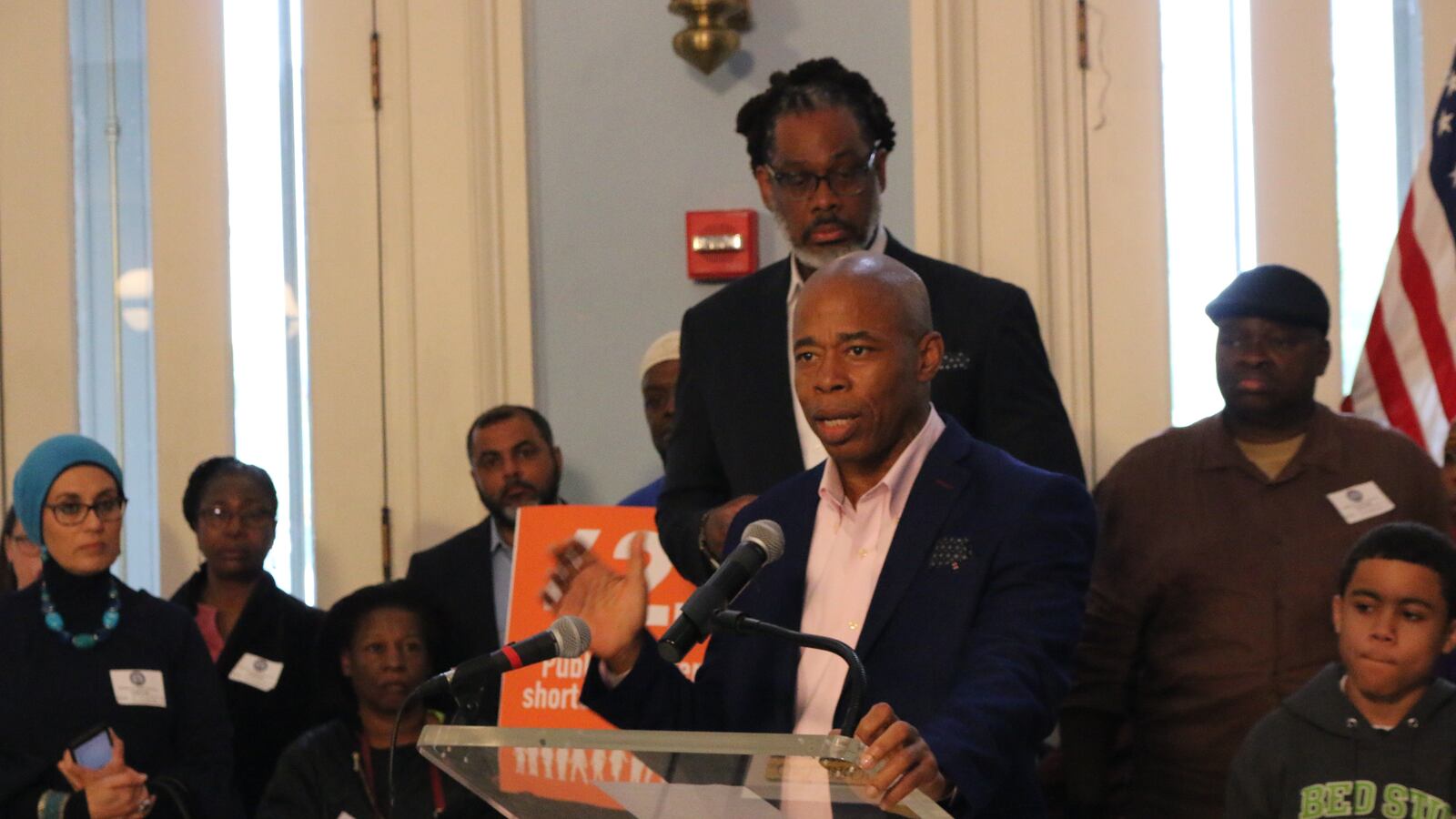New York City politicians and charter school advocates gathered at Brooklyn Borough Hall on Tuesday to demand school security funding for certain charter schools.
Advocates are asking the City Council to revise a city law that funds security at non-public schools with more than 300 students. This minimum enrollment cap and the exclusion of charter schools, they charge, means many charter schools housed in private spaces have to pull funding for school security guards from their budgets that could otherwise be used in the classroom.
“Our tax dollars should protect all our children,” said Brooklyn Borough President Eric Adams, who spoke alongside members of the City Council and charter school advocates.
The push represents a new line of advocacy for the charter sector and touches on a national conversation about school safety. After devastating school shootings this year in Texas and Florida, New York’s lawmakers have been debating the best way to keep children safe in schools.
Now, the charter sector is adding its voice to the mix — arguing that school security funding is a critical tool schools use to keep children safe. However, in the absence of security funds, charter schools remain committed to dipping into instructional budgets to hire school safety officers, said James Merriman, the CEO of the New York City Charter School Center.
“I don’t want anyone to think that right now charter schools aren’t safe,” Merriman said.
Charter school advocates have long argued that the publicly funded, privately managed schools, which educate more than 42,000 students citywide in private spaces, do not receive public funding equivalent to that of their district school counterparts. They have suggested a range of solutions to this problem, including altering the state’s funding formula and receiving more money to pay for private space.
If the City Council is not receptive to changes, charter school supporters said they may look to the state for help.
“We think this can pass at the City Council level,” Adams said. “If not…we’ll go to the state.”


